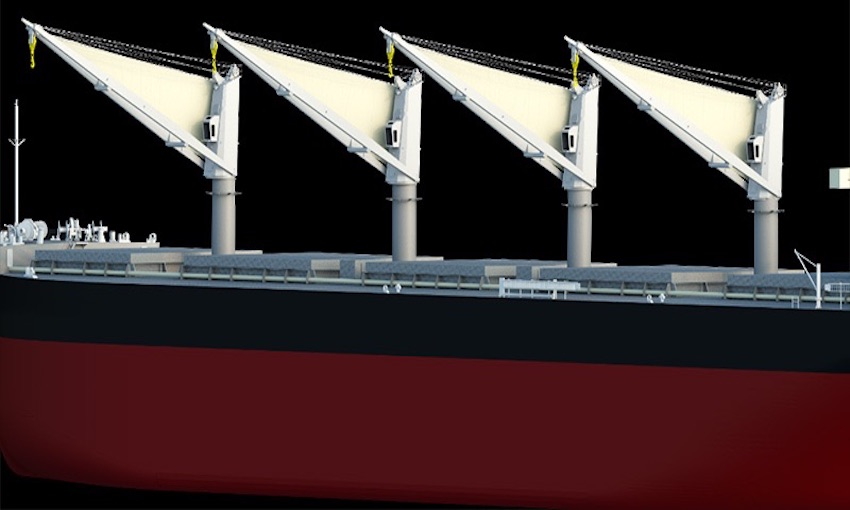MITSUI OSK Lines has announced that its has reached an agreement with numerous partners on joint research and development of the Iknow Delta Sail Crane, a sail that can be mounted on a ship’s cargo handling cranes and similar equipment to boost propulsion force.
The joint R&D project aims to reduce greenhouse gas emissions from vessels while underway, by unfurling the sail placed on different parts of the ship, such as triangular parts of existing cargo handling cranes, to use offshore winds to provide additional propulsion force.
Many MOL drybulk-operated vessels are equipped with cargo handing cranes, and the company plans to study the installation of the Delta Sail on a broad range of ship types, such as bulkers, woodchip carriers, and multi-purpose vessels.
It is part of MOL’s target to achieve net zero GHG emissions by 2050.
Through this joint R&D project, MOL group strives to reduce GHGs in clean energy supply chains in addition to its existing environment-friendly technologies using offshore winds such as Wind Challenger/Wind Hunter Project.
The Wind Challenger technology has the potential to achieve 5% to 8% reduction in GHG emissions by reducing bunker oil consumption through the use of a telescoping hard sail that converts wind energy to propulsive force.
MOL has already placed an order with Oshima Shipbuilding for construction of the first vessel to be equipped with the Wind Challenger—a coal carrier, slated to start operation in 2022.

